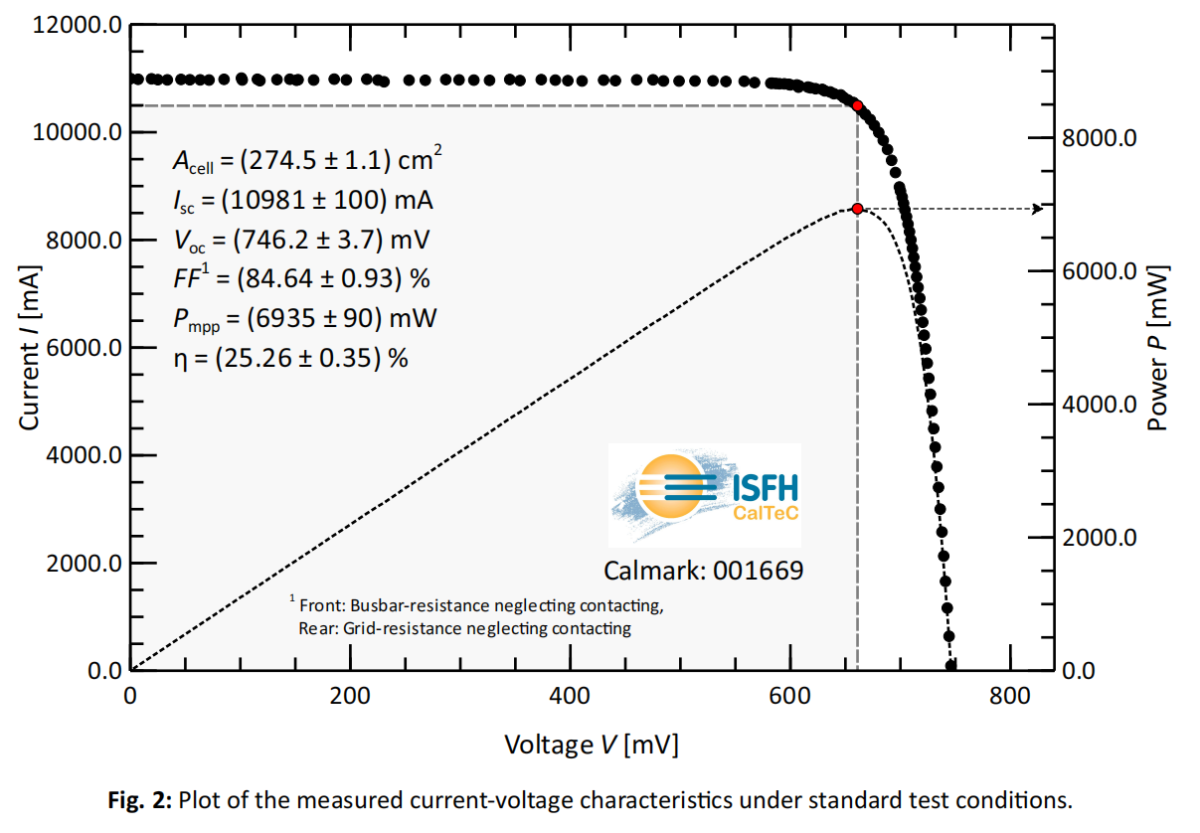China-based heterojunction module manufacturer Huasun claims to have achieved a power conversion efficiency of 25.26% for a heterojunction (HJT) solar cell.
The company said that result, which improves the device efficiency by o.03% compared to the last measurement, taken in June, was confirmed by the Institute for Solar Energy Research in Hamelin, in Germany.
“Huasu has successfully equaled the world record for the efficiency of HJT solar cells recently,” the manufacturer's CTO, Wang Wenjing, stated. “But under the same efficiency, the area of Huasun’s cells is larger, which is one of the mainstream sizes in the market.” According to him, the champion cell is second only to the HJT cell developed by Japanese chemical company Kaneka in 2017. That 180cm² crystalline silicon device, which featured heterojunction and back-contact technology, achieved 26.63% efficiency.
“The most difficult issue of HJT solar cells is that it is hard to increase the current,” Wang further explained. “This time we increased the current but at the same time, the open-circuit voltage is still high, which finds a new way to improve the efficiency of HJT solar cells in the future.”
Popular content
The cell exhibited an open-circuit voltage of 745 mV and a fill factor of 0.8454.
Huasun is currently operating a 500 MW module factory in Xuancheng City, in the southeast of China's Anhui province. Most of the production equipment was provided by China-based suppliers, such as Maxwell and Zonchow.
This content is protected by copyright and may not be reused. If you want to cooperate with us and would like to reuse some of our content, please contact: editors@pv-magazine.com.



3 comments
By submitting this form you agree to pv magazine using your data for the purposes of publishing your comment.
Your personal data will only be disclosed or otherwise transmitted to third parties for the purposes of spam filtering or if this is necessary for technical maintenance of the website. Any other transfer to third parties will not take place unless this is justified on the basis of applicable data protection regulations or if pv magazine is legally obliged to do so.
You may revoke this consent at any time with effect for the future, in which case your personal data will be deleted immediately. Otherwise, your data will be deleted if pv magazine has processed your request or the purpose of data storage is fulfilled.
Further information on data privacy can be found in our Data Protection Policy.